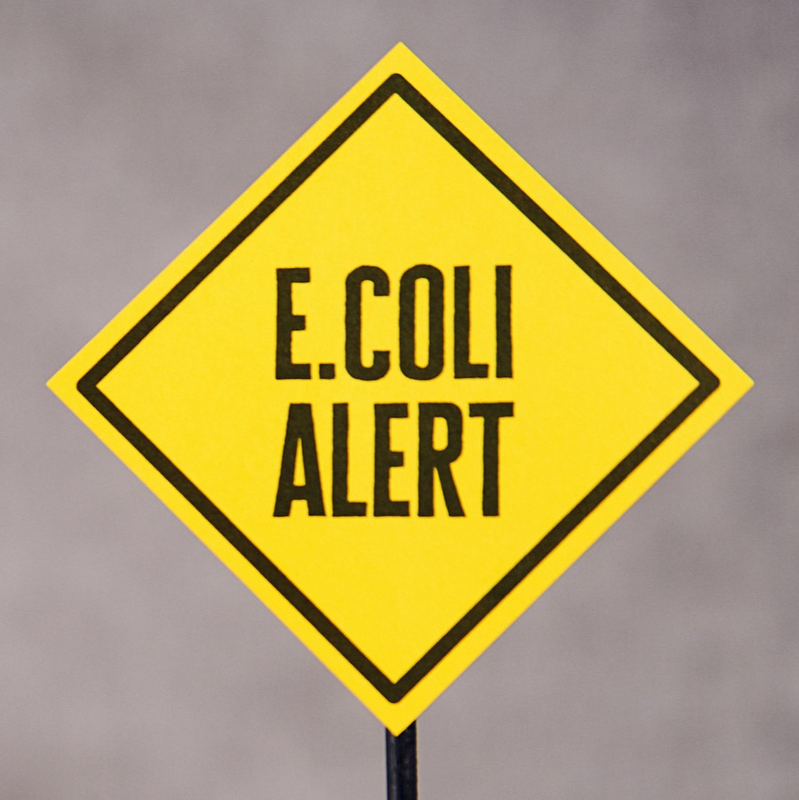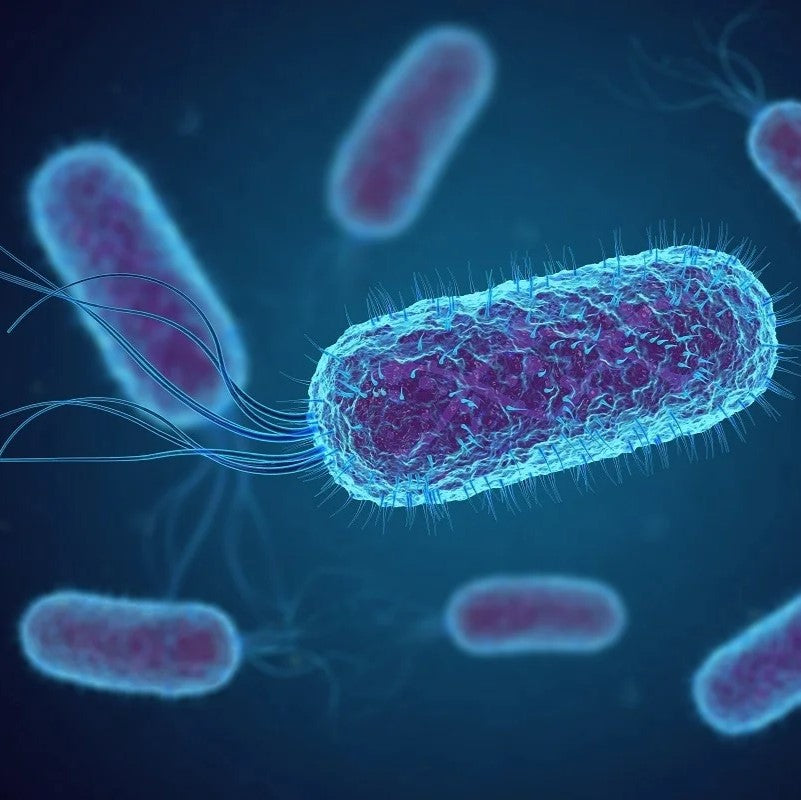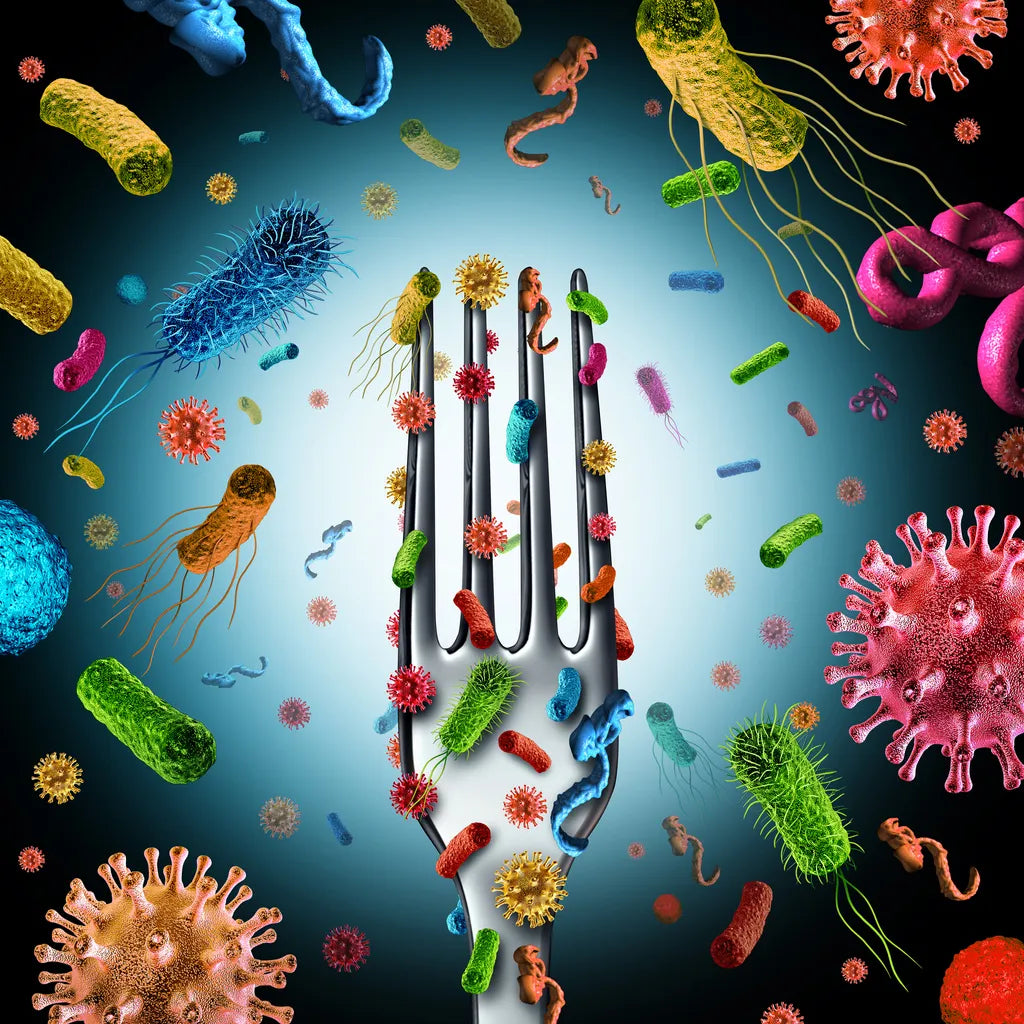Escherichia coli, comunemente conosciuta come E. coli, è un tipo di batterio che si trova naturalmente nell’intestino di esseri umani e animali. Sebbene la maggior parte dei ceppi di E. coli sia innocua e persino benefica per la salute digestiva, alcuni ceppi, come E. coli O157, possono causare malattie gravi e talvolta potenzialmente letali. L’Organizzazione Mondiale della Sanità (OMS) e i Centers for Disease Control and Prevention (CDC) hanno più volte evidenziato il peso globale delle infezioni alimentari causate dai ceppi patogeni di E. coli. Queste infezioni non solo provocano sintomi gastrointestinali severi, ma possono anche generare complicazioni a lungo termine, sottolineando l’importanza delle misure di sicurezza alimentare nella vita quotidiana.
Introduzione a Escherichia coli (E. coli)
I batteri E. coli sono generalmente innocui e fanno parte della normale flora intestinale di esseri umani e animali. Tuttavia, alcuni ceppi, come E. coli O157, sono altamente patogeni e possono provocare infezioni pericolose. Questi batteri producono tossine Shiga, che danneggiano il rivestimento dell’intestino causando colite emorragica (diarrea sanguinolenta) e altre complicazioni gravi.
E. coli O157 è stato spesso responsabile di focolai alimentari in tutto il mondo. Ad esempio, un’epidemia del 2018 negli Stati Uniti, legata a lattuga romana contaminata, ha causato oltre 200 infezioni e cinque decessi. Nel 2011, un’epidemia di E. coli in Europa ha provocato più di 4.000 infezioni e 50 morti, evidenziando la pericolosità e la diffusione di queste infezioni.
Come E. coli entra negli alimenti
I batteri E. coli possono contaminare gli alimenti in diversi modi, spesso già a partire dalla fase agricola e lungo tutto il processo di preparazione. Tra i principali fattori di contaminazione troviamo:
- Acqua di irrigazione contaminata: E. coli può entrare nella catena alimentare tramite acqua usata per irrigare le colture. Se l’acqua è contaminata da feci animali o acque reflue non trattate, i batteri possono trasferirsi facilmente su prodotti freschi come lattuga, spinaci e altre verdure a foglia.
- Contaminazione crociata in cucina: Durante la preparazione del cibo, E. coli può diffondersi dalla carne cruda ad altri alimenti tramite mani non pulite, taglieri e utensili contaminati. La contaminazione crociata è particolarmente comune con la carne macinata, che può contenere batteri all’interno della struttura.
- Scarse pratiche igieniche nella lavorazione degli alimenti: Scarsa igiene nei macelli, negli stabilimenti di trasformazione e nei centri di confezionamento può contribuire alla diffusione di E. coli. Anche l’uso di letame non adeguatamente trattato può contaminare le colture.
- Presenza di rifiuti animali in agricoltura: E. coli è spesso presente nell’intestino del bestiame. Se le feci animali vengono utilizzate come fertilizzante o si trovano nelle vicinanze delle colture, queste possono contaminare facilmente gli alimenti freschi.
Secondo le ricerche dei CDC, gli alimenti comunemente associati a focolai di E. coli includono carne macinata poco cotta, latte non pastorizzato, formaggi freschi, lattuga, spinaci e germogli. Anche la FAO sottolinea che una manipolazione impropria di questi alimenti aumenta notevolmente il rischio di contaminazione.
I rischi per la salute associati a E. coli
Le infezioni da E. coli possono provocare una vasta gamma di sintomi, la cui gravità dipende dal ceppo coinvolto. Tra i sintomi più comuni troviamo:
- Crampi addominali intensi
- Diarrea, spesso sanguinolenta
- Vomito
- Febbre
Nei casi più gravi, in particolare con E. coli O157, le infezioni possono portare alla sindrome emolitico-uremica (SEU), che provoca insufficienza renale e, in alcuni casi, la morte. Bambini, anziani e persone immunocompromesse sono particolarmente vulnerabili. Uno studio pubblicato dal New England Journal of Medicine ha indicato che ogni anno le infezioni da E. coli causano decine di migliaia di ricoveri a livello globale, con possibili effetti a lungo termine come malattie renali croniche e ipertensione.
Prevenire la contaminazione da E. coli nella vita quotidiana
Prevenire le infezioni da E. coli richiede attenzione alle pratiche di sicurezza alimentare, tra cui igiene, corretta conservazione degli alimenti e adeguata cottura. Alcune strategie fondamentali includono:
- Corretta manipolazione e conservazione degli alimenti: separa sempre la carne cruda dagli altri alimenti per prevenire contaminazioni crociate. Conserva i prodotti deperibili in frigorifero e cuoci la carne a una temperatura interna sicura (70°C per la carne macinata).
- Lavaggio accurato: frutta e verdura devono essere lavate accuratamente sotto acqua corrente per rimuovere sporco e possibili contaminanti. Tuttavia, il lavaggio tradizionale potrebbe non bastare per eliminare completamente i batteri presenti sulla superficie o all’interno degli alimenti.
- Igiene in cucina: lava accuratamente le mani con sapone prima e dopo aver manipolato gli alimenti, soprattutto la carne cruda. Disinfetta taglieri, coltelli e superfici dopo ogni utilizzo.
Come il Milerd Detoxer può aiutare a prevenire la contaminazione da E. coli
Sebbene i metodi tradizionali di pulizia riducano parte della contaminazione, il Milerd Detoxer offre una soluzione più avanzata e scientificamente comprovata per la sicurezza alimentare. Progettato con tecnologia all’avanguardia, il Milerd Detoxer combina processi di pulizia ultrasonica e ossidativa, garantendo che i batteri pericolosi come E. coli vengano eliminati in modo efficace.
Il Detoxer è stato sottoposto a rigorosi test di laboratorio in Europa, riportando risultati notevoli:
- Riduzione dei pesticidi del 97,6%
- Rimozione dei metalli pesanti del 99,9%
- Eliminazione delle muffe del 96,3%
Questa combinazione di ultrasuoni e pulizia ossidativa consente di rimuovere non solo i contaminanti superficiali, ma anche i batteri annidati all’interno delle strutture degli alimenti. Le ricerche dimostrano che i metodi tradizionali falliscono spesso nel rimuovere completamente i batteri, soprattutto negli alimenti con superfici complesse come le verdure a foglia.
Confronto tra metodi tradizionali e Milerd Detoxer
I metodi tradizionali di pulizia, come il semplice risciacquo o l’uso di soluzioni a base di aceto, possono ridurre parzialmente i batteri superficiali ma non eliminano completamente E. coli e altri microrganismi nocivi. Secondo studi pubblicati sul Journal of Food Protection, il risciacquo con acqua riduce i batteri di circa il 50%, mentre metodi più avanzati come quelli utilizzati dal Milerd Detoxer offrono un’efficacia molto maggiore.
Il sistema a doppia azione del dispositivo per la pulizia degli alimenti garantisce una pulizia completa, raggiungendo i batteri nelle zone più difficili da sanificare. Inoltre, il processo non utilizza sostanze chimiche aggressive, rendendolo una scelta ecologica e sostenibile.
Vantaggi dell’utilizzo del Milerd Detoxer per la sicurezza alimentare
Il Milerd Detoxer offre numerosi vantaggi che lo rendono uno strumento prezioso per la sicurezza alimentare:
- Eliminazione dei microrganismi nocivi: elimina efficacemente batteri, virus e piccoli parassiti, inclusi E. coli, senza ricorrere a detergenti chimici.
- Preservazione dei nutrienti: a differenza di alcuni metodi che compromettono la qualità degli alimenti, il Detoxer mantiene intatti i nutrienti essenziali.
- Semplicità d’uso: il dispositivo dispone di un’interfaccia touchscreen intuitiva ed è portatile, ideale per l’uso domestico e in viaggio. Può completare fino a 20 cicli con una sola carica, grazie alla batteria da 3600 mA/h.
- Eco-sostenibile: riducendo la necessità di detergenti chimici, il Milerd Detoxer favorisce un approccio più sostenibile alla preparazione degli alimenti.
Rimani al sicuro dalla contaminazione da E. coli: agisci ora!
Per ridurre il rischio di infezioni da E. coli, è essenziale adottare misure complete di sicurezza alimentare, tra cui corretta manipolazione del cibo, lavaggio adeguato e igiene della cucina. I metodi tradizionali potrebbero non essere sufficienti, ma il Milerd Detoxer offre una soluzione avanzata.
Questo dispositivo innovativo combina pulizia ultrasonica e ossidativa per eliminare efficacemente i batteri nocivi, incluso E. coli, preservando al contempo i nutrienti e rispettando l’ambiente.
Proteggi la tua famiglia! Integra il Milerd Detoxer nella tua routine quotidiana e assicurati che i tuoi pasti siano sicuri e salutari. Difendi la salute dei tuoi cari e goditi una maggiore tranquillità a ogni morso!



Commenta
Questo sito è protetto da hCaptcha e applica le Norme sulla privacy e i Termini di servizio di hCaptcha.